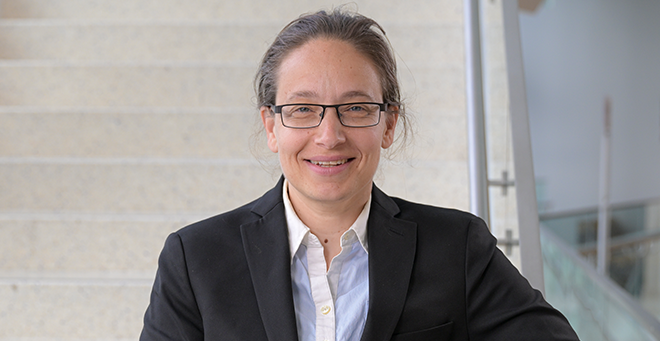
Photo: Shutterstock
The Eunice Kennedy Shriver Center at UMass Chan Medical School is completing the first phase of data collection for a longitudinal study of the baby’s developing social brain.
Using functional near-infrared spectroscopy (fNIRS) and functional MRI (fMRI), the Shriver Center’s Baby Brain Study collected data from a community sample of more than 80 children and their mothers from delivery through the first 14 months of the child’s life.
“We’re interested in the baby’s social brain, critical for long-term neurodevelopmental and socioemotional and mental health,” said Sohye Kim, PhD, assistant professor of psychiatry & behavioral sciences and principal investigator on the study. “The baby’s social brain develops in the context of early social input from their early environment, and oftentimes the mother is a central component of the baby’s earliest environment.”
According to Dr. Kim, the pilot data shows a negative association between babies’ social brain response and mothers’ postpartum depression and anxiety.
“When a mother suffers from depression or anxiety, it compromises the social environment where the baby’s brain develops. So far in our pilot data, we see mothers’ depression and anxiety as the strongest negative predictor of the baby’s social brain response in the first year of life,” Kim said.
The Baby Brain Lab at the Shriver Center recruited mothers and babies right after birth, with visits at four months, six months and 12 months. During each visit, the baby and mother would each wear fNIRS caps while the team simultaneously recorded the mother’s and baby’s real-time brain activities during naturalistic play.
At six months, the team performed a fMRI scan of the babies during natural sleep to study their brain responses to their mother’s voice, an unfamiliar adult’s voice, and noises shaped like human speech that imitate the mother’s frequency and amplitude.
Kim said the accumulated pilot data presents a compelling need for a fuller examination of social brain development in infants of mothers with clinically significant postpartum depression and anxiety.
“The goal is to extend our ongoing work to higher risk babies and follow these babies long-term. This includes babies of mothers who are experiencing psychiatric disorders, such as maternal depression and anxiety, which is common during the first year of a baby’s life. We’re also preparing to extend the study to babies who are at genetic risk for autism,” Kim said.
In 2024, Kim received the Susan A. Hickman Award from Postpartum Support International, which helped fund part of the Baby Brain Study. She also delivered the keynote address, presenting the study’s early findings at the 37th Annual Postpartum Support International Conference last summer.
The study was also funded through the National Institutes of Health KL2 career development award, with additional support from the UMass Center for Clinical and Translational Science and the Shriver Center.

